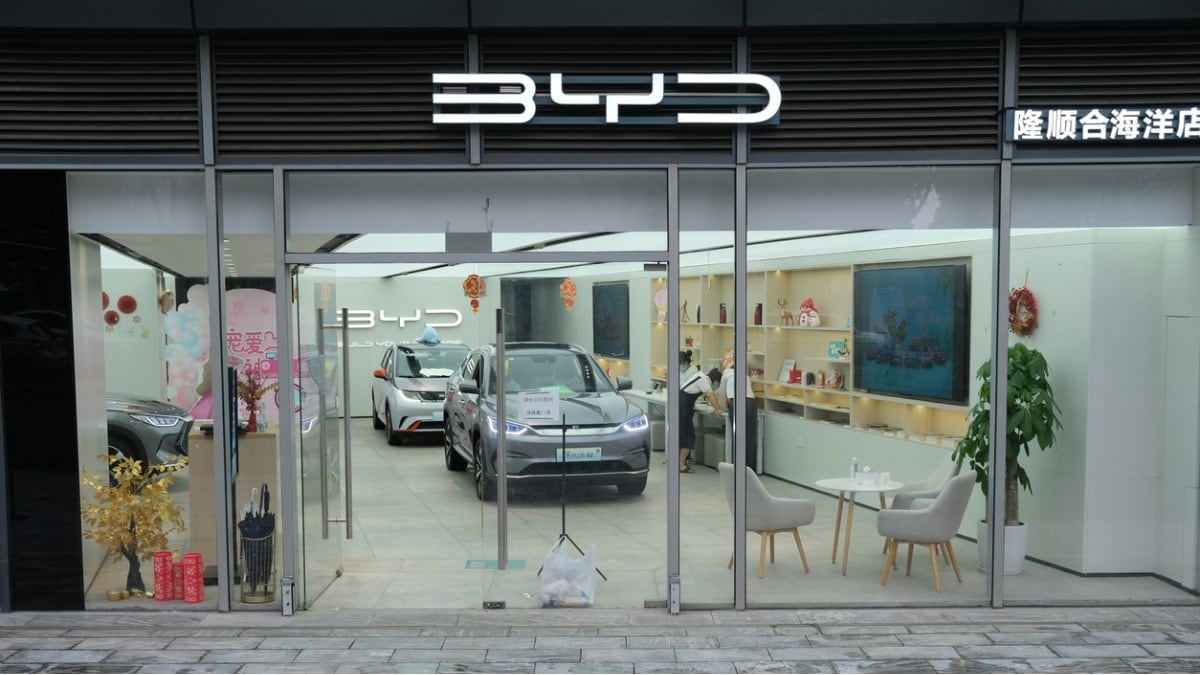Chinese automaker BYD will likely overtake both Ford and Honda in global auto sales this year, Reuters reports.
“BYD has been on an extraordinary expansion this year, increasing capacity and undertaking a massive hiring spree to turbocharge revenue that surpassed EV leader Tesla in the third quarter.”
The company delivered 3.76 million cars to customers in the first 11 months of the year — enough to surpass automotive giants from the U.S. and Japan.
Could Match GM, Stellantis Soon
“If that sales momentum continues, BYD could sell more than 6 million units in the next 12 months, which would put it on par with the world’s leading automaker groups such as General Motors and Stellantis, according to Reuters estimates based on the automakers’ existing sales.”
China has quickly become both the world’s largest automotive market and the world’s leading exporter of new cars. BYD is China’s largest automaker, with 17.1% of the country’s domestic auto market.
No Chinese Cars in US Market — Yet
No Chinese domestic automaker sells cars in the U.S. today, but several brands traditionally not considered Chinese are now under part-Chinese ownership. Notably, Volvo and spinoff Polestar Motors are both part-owned by Chinese automaker Geely.
Some automakers traditionally considered American now import cars built in China. Ford imports its Lincoln Nautilus SUV from Hangzhou. GM ships its Buick Envision from China to the U.S. for sale.
Chinese companies have grown dominant in Mexico, where Chinese cars outsold American-made cars last year. Several have built factories there, and policymakers worry they could import vehicles to the U.S. from there.
Several Government Efforts Would Keep Them Out
The U.S. government has launched several efforts to keep Chinese cars out of American markets, including a 100% tariff and rules intended to block Chinese-derived software from American cars on national security grounds.
Surveys show that many Americans are already familiar with Chinese brands they can’t buy. If those vehicles arrived in U.S. dealerships at prices cheaper than any American company could match, they might gain popularity fast.
The rules might help protect American automakers from competing with Chinese companies in the U.S., but they don’t affect overseas markets, where Chinese companies can quickly grow dominant.








